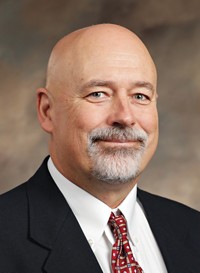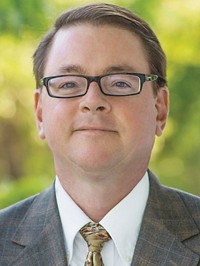Advertisement
Grab your lab coat. Let's get started
Welcome!
Welcome!
Create an account below to get 6 C&EN articles per month, receive newsletters and more - all free.
It seems this is your first time logging in online. Please enter the following information to continue.
As an ACS member you automatically get access to this site. All we need is few more details to create your reading experience.
Not you? Sign in with a different account.
Not you? Sign in with a different account.
ERROR 1
ERROR 1
ERROR 2
ERROR 2
ERROR 2
ERROR 2
ERROR 2
Password and Confirm password must match.
If you have an ACS member number, please enter it here so we can link this account to your membership. (optional)
ERROR 2
ACS values your privacy. By submitting your information, you are gaining access to C&EN and subscribing to our weekly newsletter. We use the information you provide to make your reading experience better, and we will never sell your data to third party members.
Policy
For District II Director: Joseph R. Peterson
by Joseph R. Peterson
September 6, 2010
| A version of this story appeared in
Volume 88, Issue 36
Joseph R. Peterson
East Tennessee Section. University of Tennessee, Oak Ridge National Laboratory (retired)
Academic record: Swarthmore College, A.B., 1964; University of California, Berkeley, Ph.D., 1967
Honors: Chancellor’s Award for Research & Creative Achievement, University of Tennessee, 1988; Phi Eta Sigma Outstanding Teacher Award, 1976; North Atlantic Treaty Organization (NATO) Fellow in Science, University of Liège, Belgium, 1969–70; Sigma Xi, 1964
Professional positions (for past 10 years): University of Tennessee, professor emeritus, 1997 to date, professor, 1979–97; Pecos Management Services, project director, 2005–06; Oak Ridge National Laboratory, senior R&D staff, 2001–02, adjunct R&D participant III, 1993–2001
Service in ACS national offices: Committee on Membership Affairs, 2001–07, chair, 2005–07, vice chair, 2004, committee associate, 2000; Council Policy Committee (nonvoting), 2005–07; Committee on Divisional Activities, 1994–99, consultant, 2000–01; Board of Trustees, Group Insurance Plans for ACS Members, ex officio, 2005–07; Chemistry, Editorial Advisory Board, 2003–07, chair, 2005–07; Focused Interest Group Task Force, chair, 2008; Joint Board-Council Policy Committee Governance Review Task Force, 2005–07; Joint Task Force on Member Retention, 1997–99; Canvassing Committee for ACS Award in Nuclear Chemistry, 1993–96, chair, 1995–96
Service in ACS offices: Member of ACS since 1967. Division of Nuclear Chemistry & Technology: councilor, 1993–2007; chair and program chair, 1990; chair-elect, 1989; vice chair-elect, 1988; treasurer, 1978–87; Summer Schools in Nuclear & Radiochemistry, national director, 1995–2001; Publications Committee, 1994–96; Nominations Committee, 1991–94, chair, 1991; Pacifichem 2000, liaison, 1997–2001; Education & Training Committee; Membership Committee, 1976–78; Bylaws Revision Committee, chair. East Tennessee Section: treasurer, 1998–99; alternate councilor, 1988–93; Audit Committee, 2005–09; Membership Committee, 1972–74, chair 1973–74; Chemical Education Committee, 1973–74; Nominating Committee, 1985, 1987, 1994, 1997. Southeast Regional Meeting: treasurer, 1999; hospitality chair, 1976
Member: American Nuclear Society, Sigma Xi, Scientific Research Society. ACS Division: Nuclear Chemistry & Technology
Related activities: Radiochimica Acta, Editorial Advisory Board, 1996–2008; Lawrence Livermore National Laboratory, participating guest, 1998–99, consultant, 1973–79; Roy F. Weston Inc., consultant, 1998; University of Mainz, Germany, guest scientist, 1997; Oak Ridge National Laboratory, adjunct R&D participant II, 1977–93, consultant, 1967–77; National Academy of Sciences-National Research Council Committee on Nuclear & Radiochemistry, 1988–93, vice chair, 1992–93; Nuclear Research Center, Karlsruhe, Germany, visiting scientist, 1981–82; European Institute for Transuranium Elements, visiting scientist, 1981–84, 1986–89; have more than 200 publications and one patent dealing with the basic physicochemical properties of the 4f and 5f elements and their compounds. For more details, please visit myprofile.cos.com/joepete
Peterson’s Statement
My professional career includes 34 years in academia (at the University of Tennessee) and actinide science research in an industrially managed national laboratory (Oak Ridge). I was also privileged to live for two years in Europe doing research in a lab at the University of Liège, in Belgium, and in a nuclear research center in Karlsruhe, Germany. Both of these years abroad led to the establishment of productive, ongoing international research collaborations and personnel exchanges.
For more than 30 years, I have volunteered for ACS service in my local section (East Tennessee) and in the Division of Nuclear Chemistry & Technology. Since 1993, I’ve served on council committees and subcommittees, the Governance Review Task Force, and other working groups and summits. This broad exposure to and participation in many aspects of the chemical enterprise has prepared me well for service on the ACS Board of Directors, having already gained a good understanding of ACS’s culture and infrastructure.
I have worked previously with a majority of the current board members. I look forward to taking up the various challenges and opportunities to continue and expand ACS’s role in global society to “improve people’s lives through the transforming power of chemistry.” This ACS vision statement is supported by a living strategic plan that serves as the overall guide to ACS’s efforts to solve complex problems in a global, collaborative environment.
The board has an awesome responsibility to lead in advocating and furthering the objects of the society, penned more than 70 years ago and still totally applicable now! As chair of the Membership Affairs Committee, I had the privilege of leading the efforts to bring to fruition the recent, monumental changes to ACS membership eligibility and diversity that are now broadening our collective intellectual capital, political influence, and cultural and social experiences. The consensus-building process used to achieve that goal is a perfect match to the board’s process for determining ACS’s future directions and overseeing the society’s sustainable viability.
As a board member, my focus will always be on supporting our members and protecting the sustainability of ACS. With our talented membership, financial resources, and numerous volunteers, we have the ability to do almost whatever is the consensus of the membership.
ACS membership surveys identify access to technical information as the main reason for joining the society. Thus, it is of the utmost importance that we ensure the viability of our journal and abstracting operations and related data warehousing and dissemination functions so that they will continue to be world class.
Closely allied with the need for technical information is the necessity to communicate with other chemists. This is the ultimate purpose of the ACS Network and the reason I led a task force to encourage its rapid development. As a result, network members will be able to communicate with one another in real time, to form and join groups dynamically, and to communicate easily and effectively within groups. These capabilities will continue to evolve. I will use this network to communicate with our district’s 42 sections, to solicit input on issues of concern, and to disseminate relevant information.
Another goal is for those members not attending ACS meetings to have access to technical information presented there. Should we not continue to explore possible mechanisms to allow access to interested parties?
As a career educator and a grandfather, I am interested in finding ways to use the evolving electronic devices found in the hands of most of today’s youths to take advantage of their natural curiosity. Increasingly sophisticated personal devices are available to receive content that could support and advance one’s interest in science, technology, engineering, and mathematics (STEM).
We can even tailor such content to age or grade level to stimulate, educate, and potentially recruit for a professional career. Knowledge and skills determine the ability to get jobs, so we should consider how future chemists can be better prepared to meet the challenges of globally competing for jobs.
As a soccer referee for more than 30 years, I set high standards to work with diverse groups having competing agendas to get an outcome with consensus building and respect for the rules of the game. The same approach applies to ACS Board service with respect for the objects of the society!
If elected I will bring my full energy, time, and enthusiasm to the board. I am eager to use my personal experience and perspective to be an advocate for the advancement and continued success of ACS, its members, and the entire chemical enterprise. I deeply appreciate your consideration and your vote!
Further details are available in my biographical summary above.





Join the conversation
Contact the reporter
Submit a Letter to the Editor for publication
Engage with us on Twitter